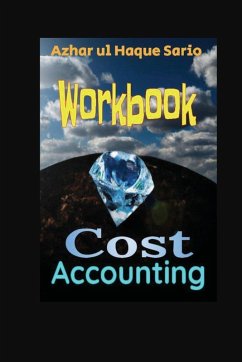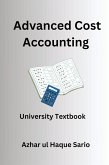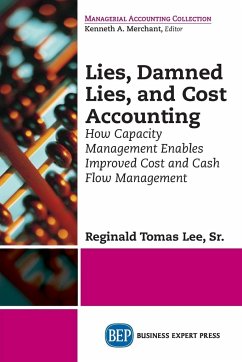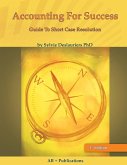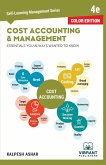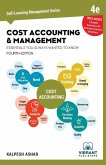In this book, we delve into the multifaceted world of cost accounting, exploring various concepts and ideas that are pivotal in the financial management of businesses. Each section of the book offers a comprehensive understanding of different aspects of cost accounting, presenting 50 theoretical and 50 computation-based questions that are ideal for examination preparation in any discipline for cost accounting. The book begins with the exploration of Direct Costs. The section familiarizes readers with costs directly attributable to producing a product or service. It includes material, labor, and expense costs directly involved in production. The theoretical and computational questions offer a deep understanding of how to calculate and analyze direct costs. The second section focuses on Indirect Costs, which are not directly accountable to a cost object (such as a particular project, facility, function or product). It further elaborates on how to distribute these costs appropriately and how they impact the overall financial picture of a company. Theoretical questions cover the basics, while the computation-based ones help in practical understanding. The third section discusses Fixed Costs, which do not change with the level of output. It provides an in-depth understanding of how these costs play a role in pricing and profitability. The comprehension of fixed costs is bolstered through a set of theoretical and computational questions. Variable Costs are discussed in the fourth section. These costs change in proportion to the level of output. The section provides a comprehensive understanding of variable costs through a series of theoretical and practical questions. The fifth section is dedicated to Opportunity Costs, which represents the potential benefits an individual, investor or business misses out on when choosing one alternative over another. Theoretical questions offer a conceptual understanding, while computation-based ones provide practical application. Cost Allocation, Job Order Costing, and Process Costing are covered in the next sections. These topics delve into the specifics of how costs are assigned to products or services, how specific jobs are costed, and how costs are accounted for in continuous process industries respectively. Each section is equipped with 50 theoretical and 50 computation-based questions. Sections on Activity-Based Costing, Variable and Absorption Costing, and Cost-Volume-Profit Analysis provide an understanding of more specific and complex cost accounting methods and concepts. Each section is rounded off with a set of theoretical and computation-based questions that solidify understanding and application of these concepts. The final sections of the book cover Budgeting, Standard Costs and Variance Analysis, Strategic Decision-Making Costs, Cost Control and Performance Measurement, and Cost Accounting Systems. Each section provides an in-depth exploration of these topics, equipped with a set of theoretical and computation-based questions that allow for a comprehensive understanding and practical application of these concepts. This book is a comprehensive guide to cost accounting, providing readers with a solid understanding of various concepts and methods used in the field. The layout of the book, with each section offering theoretical and computational questions, makes it an ideal resource for examination preparation in any discipline for cost accounting.
Hinweis: Dieser Artikel kann nur an eine deutsche Lieferadresse ausgeliefert werden.
Hinweis: Dieser Artikel kann nur an eine deutsche Lieferadresse ausgeliefert werden.

